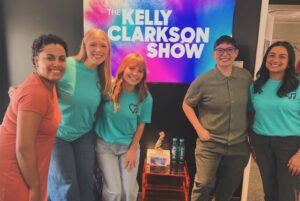blog
Making Music, Making Connections: Interview with Manavi Bajpai
Interview by Aashtha Amin, Riley’s Way Partnership Intern
Manavi Bajpai (she/her) is a second year college student from Nashville, Tennessee. She was a 2022 Call for Kindness Fellow and is currently the Co-Chair of the Riley’s Way Youth Advisory Board. As a musician herself, she said that her closest friends came from her orchestra band group. She realized that she and many of her friends had old instruments that were in good condition and had no place to put them. Using her passion for music and her desire to put old instruments to good use, she founded Tunes For Kidz. This non-profit organization provides instruments to underprivileged kids, some of whom go to schools without music programs and some of whom are in the foster care system. In her time with Riley’s Way, Manavi has acted as a youth voice in the Board of Directors and has both led and managed the different committees within the Youth Advisory Board. She plans to continue expanding her organization and is determined to reach as many different demographics as possible.
How did you first hear about Riley’s Way and get involved with the Youth Advisory Board?
I got started with Riley’s Way through my nonprofit, Tunes for Kidz. We’re based in Nashville, Tennessee—that’s where I’m from—and we accept donated instruments that people don’t use and give them to kids in the foster care system, kids who can’t afford them, kids in the military, just kids everywhere that have a need. I found out about the Call For Kindness grant when a mentor who leads a similar project in Indiana reached out to me, and she was like, “Hey, there’s this organization you should look into that gives out grants for young people.” We applied for the Call For Kindness, and that’s how I found out about Riley’s Way. The thing that really made me stick with it was the Call For Kindness Retreat. There, I met Christine O’Connell, PhD, Stephanie Dore Kingston , and Cheyenne R., and I just loved all of them so much that they stayed in touch with me throughout my whole process. They thought I’d be a good fit for the Youth Advisory Board, so I looked into it and applied. I had some good friends who were on the Board: Michal, Agha, and Gia, and it was really cool to be in that experience. Throughout this past year—my first year in college—I started to get way more involved with the Board and also started being a mentor at all the Retreats. Michal is also a Co-Chair of the Youth Advisory Board, and he thought I’d be really good for the role, too. That is what led me down the path of being the Co-Chair of the Youth Advisory Board.
What are your main responsibilities on the Youth Advisory Board?
First and foremost, it’s being that youth voice in the Board of Directors. This July, Michal, a few other people, and I attended the Board Retreat, and we had so much of a voice. People were dying to talk to us, because they wanted to know our thoughts as they’re making changes to funding and to programs. They wanted our opinion. That’s our main role: being that youth voice and being the young people that have done the programs and telling them what we like and what we don’t like. My second responsibility is leading the Youth Advisory Board. Christine, Michal, and I always plan our meetings out way beforehand, and we think about what we want the Youth Advisory Board to actually do. We have our own Youth Advisory Board committees, and then we have the Board of Directors committees. Michal and I make sure that everyone’s on both of those committees, and we make sure the youth voice is being heard. We make sure the Youth Advisory Board is attending Board of Directors meetings, and also that our own committees are doing what they need to do. We lead the meetings and make sure everyone has a role, has a part. In our own Youth Advisory Board meetings, we talk to them about what’s going on, we just throw out ideas at them. It’s very much a brainstorm breakout room type of thing. We facilitate the conversation and make them feel comfortable using their voices to initiate change.
 What inspired you to create Tunes for Kidz? Do you have a music background?
What inspired you to create Tunes for Kidz? Do you have a music background?
I’m from Nashville, which is Music City, and it played a really big role in my upbringing. I grew up playing cello and I joined orchestra and band because I also played clarinet. There, I found my best friends. I found my first sense of community with music. I stuck with it, because I really loved the feeling that music gave me. I learned how to sing, play guitar, play piano, write my own songs, and I just loved it so much. I had an old guitar lying around because I got a brand new one for my 15th birthday. My dad asked me to look for somewhere to donate it since we didn’t really need it because no one else in my family is musically inclined at all. I looked around Nashville, and I couldn’t find a single place that took instruments and gave them to someone else, which was crazy because Nashville’s Music City, so you would think that would exist. We decided to do a one time instrument donation drive, just in our suburb, and it was a really big success. When COVID hit, I was a sophomore in high school, and I had a lot of time on my hands. I thought, “Okay, let me just sit down and make this an actual thing,” and that’s where Tunes for Kidz was born. Now Tunes for Kidz is about to enter its fourth year. We’ve done 500 instrument donations, and we are expanding into different states right now.
After you did your initial drive, how did you spread the word so that people knew that Tunes for Kidz was the place to donate their instruments?
One thing that I was really fortunate to have is connections in Nashville. First, I talked directly to my teachers that I had: my cello teacher, my band teacher, and my orchestra teacher. I asked them, “I’m starting this project, and I think it’s a really good idea. Can you help me tap into other teachers that you know in Nashville?” Using their connections was really big. The other big part of it was cold emailing people. It took us a while to get to the point that we’re at, and we’re still always working to find out new demographics. I cold emailed a bunch of people and said, “Hey, I know I’m young, but I have this idea. I think it’d be really helpful for you and your resources. Can we get on a call?” Before I asked them to use my nonprofit, I first asked to get on a call to see if we can do something together. That fostered a lot of relationships for us.
It’s a ripple effect. You start with something little, and then you suddenly have these connections, and those connections know people. That’s how things spread. How has Riley’s Way supported your success in Tunes for Kidz or in yourself?
I tell people this all the time: we would not be here if it weren’t for Riley’s Way. After high school, I loved Tunes for Kidz, and I wanted to keep it around, but our team was all seniors in high school going to college all across the country. I got on a call with Cheyenne, the Call For Kindness Program Director, and they just sat me down and said we could figure this out together. That’s what every single person on the Riley’s Way staff did with me. Our first semester of college was really, really hard in our organization. We tried to keep it together, but we just could not, so we actually stopped for about two or three months, which was really hard. That’s when Riley’s Way was really supportive for me personally, and said, “It’s okay, everyone needs to take breaks. It’s fine for these types of things to happen.” We restarted in January and are figuring out what we want to do now. Throughout the whole process, just knowing that we had the support and confidence of the Riley’s Way staff the entire time, that was our big thing. When we went to the Call For Kindness Retreat back when we first got the Call For Kindness grant, we met Ian, the co-founder of Riley’s Way, and the guest speakers and watched them set up this entire workshop just for us to learn and grow our nonprofits. That gave us the confidence to think, “Wait, maybe we are doing something that’s special and worth the time and sometimes the tears.” It can be hard, but that confidence that they gave us is why we’re still here today. A lot of my really good friends are also in the Riley’s Way community: Dylan, Gia, and Agha. I look up to all of them and talk to them all the time about the problems I’m having. Just knowing that there’s people that are empathetic to you and know exactly what you’re going through being so young, that’s how Riley’s Way has supported us.
Where do you see your project going from here? What are your next goals? Where do you see yourself in five years?
This is the million dollar question. Right now, we’re working on expansion. That’s our main goal: how can we make more of an impact in different communities? First, we’re thinking about demographics. We’re trying to not only help individual kids and kids in the foster system, but consider other demographics that we have not thought about—that a lot of people haven’t thought about—that could really be impacted by this. That’s the main thing we’re doing right now that I hope in five years, we have figured out how we can break into each different demographic. Our second goal is chapters and physical expansion. We have five chapters here in the state of Tennessee that are being piloted right now. In five years, I hope that the program is fully fleshed out, and we have chapters all across the country, all the way from California to New York, especially on college campuses. We’re also piloting a songwriting curriculum that we hope can be universally accepted, that we can just use for all different demographics, all different locations, and all different kinds of people, no matter what your knowledge is of music.

